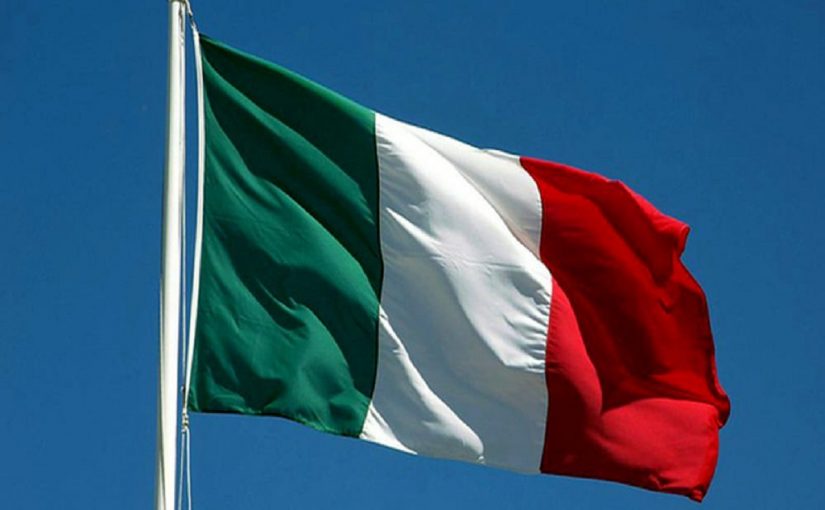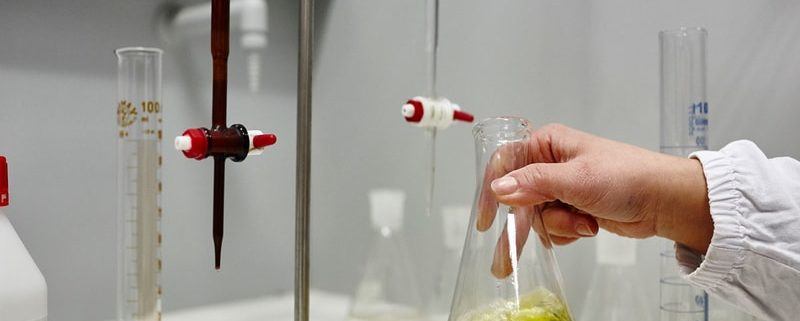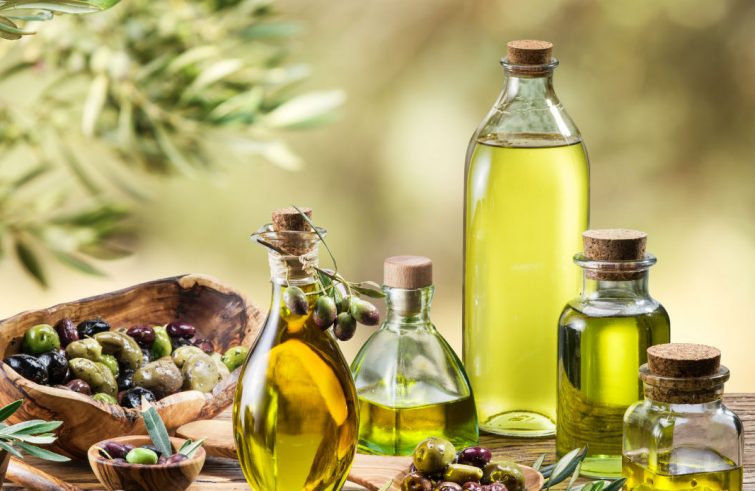20.10.2019
Italy according to the ancient Greeks corresponded to the current Calabria!
It has been hypothesized that the name derives from the word “Italói“, a term used by the Greeks to refer to the Vituli (or Viteli), a population that lived in the extreme tip of the Italian peninsula, the region south of today’s Catanzaro, and which worshiped the simulacrum of a calf (vitulus, in Latin).
KING ITALUS AND HIS POPULATION
The name “Italy” would therefore mean “inhabitants of the land of calves“. In fact, what is usually considered certain is that the name initially indicated only the part located in the extreme south of the Peninsula, Calabria.
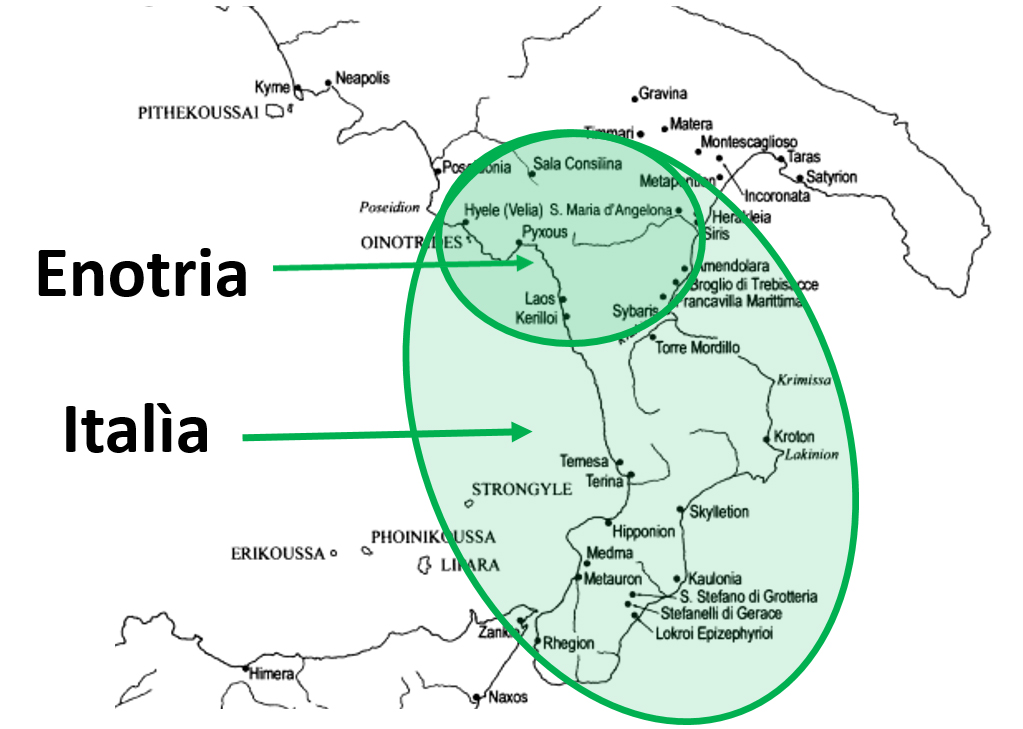
At first it was limited to that extreme part of Calabria that lies south of the gulfs of Sant’Eufèmia and Squillace, or, according to another possible interpretation of the sources, roughly in Cilento, between the Sele and Lao rivers (the latter is in Calabria).
“The region, which is now called Italy, anciently was inhabited by the Enotri; in that time their king was Italo, then they changed their name to Itali; succeeding Italo Morgete, they were called Morgeti; then came a Siculo, who divided the people, who were then Morgeti and Siculi; while Itali were those who were called Enotri”
(Antiochus of Syracuse, in Dionysius of Halicarnassus 1, 12 vg).
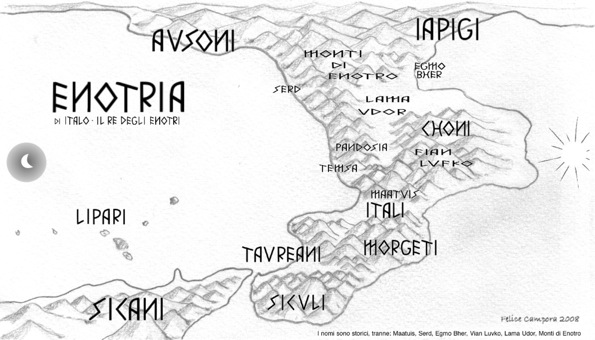
There are various legends about the character of Italo, king of the Enotri who, according to the myth, would have lived 16 generations before the Trojan War: the name Italia (Italy) would derive from him.
The name Italy was given first to the region corresponding to his kingdom, namely to almost all of Calabria except the northern zone, the name Italy subsequently extended to the whole peninsula (up to the current regions of Tuscany and Marche) as reported by Thucydides, Aristotle, Antiochus of Syracuse and Strabo.
King Italo converted the Enotri from a nomadic to a sedentary people, establishing them in the extreme offshoot of the European coasts, in the present isthmus of Catanzaro between the Gulf of Squillace to the east and the Gulf of Sant’Eufemia to the west.
The capital of his kingdom, according to Strabo, was Pandosia Bruzia, today probably corresponding to the city of Acri.
According to what Strabo tells us, Antiochus of Syracuse (V century BC) already spoke of the borders of Italy in his work “On Italy“, which identified the country with the ancient Enotria.
At that time, Italy extended from the Strait of Sicily to the Gulf of Taranto (east) and the Gulf of Posidonia (west). Later, with the Roman conquest of the following centuries, the term Italy extended to the Alps, including Liguria up to the Varo River and Istria up to Pula. Conclusively, all its inhabitants were considered Italic and Roman.
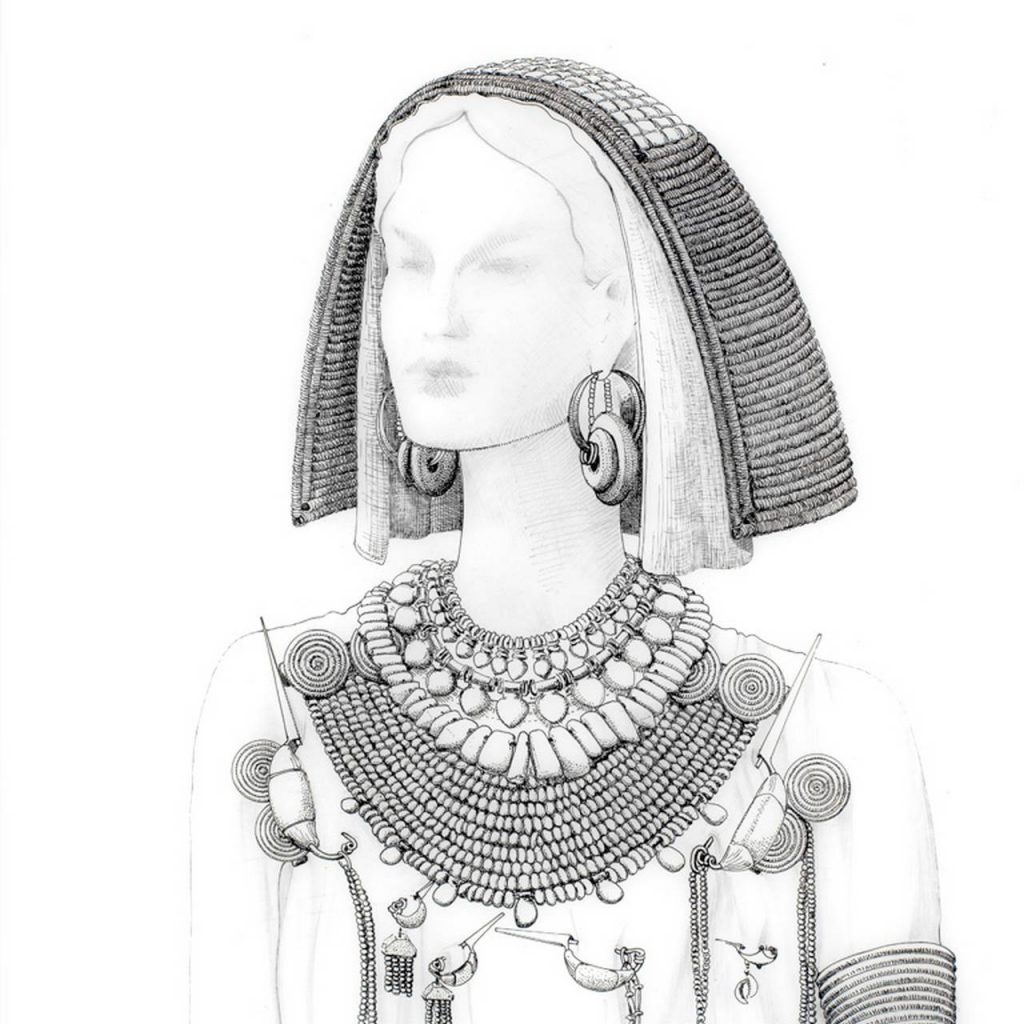
ITALY AS A LAND OF BULLS
Among the proposals that motivate the name Italy beyond a real linguistic analysis can be remembered that of Domenico Romanelli, who, basing himself on the ancient but never fully accepted hypothesis that it was in relation with the bulls, explained it with the fact that who came from the west sea saw taurine shapes in the Bruzia peninsula (corresponding to actual Calabria).
This idea suits the tradition in ancient times that the lands of present-day Calabria were known as Italy. The Greeks, indeed, indicated the origin of the name in “Ouitoulía” from the word “Italòi” (plural of Italós), a term by which the Achaean settlers who arrived in the lands of present-day Calabria ambiguously designated both the Vituli and a population that inhabited the lands to the south of the isthmus of Catanzaro, whose ethnology was etymologically related to the word indicating the bull, sacred animal to the Vituli and deified by them, namely the bulls themselves: the Greek word “italós” in fact is of Oscan derivation, from “uitlu“, nameyl “bull” (see also the Latin “uitellus“, a form with a diminutive suffix meaning calf).
Thus, “Ouitoulía” came to mean “land of the Vituli” or “land of the bulls“. To support this hypothesis, it is recalled that in the southern part of the Calabrian peninsula there are place names of Magna Graecia origin (some translated in Latin by the Normans) probably referring to the most ancient etymology of the bulls’ land (of cattle):
– Bova (from the latin “bos-bovis”, calf),
– Bovalino (from “bos-bovis”),
– Taurianova (from the latin “taurus”, bull),
– Gioia Tauro (from “taurus”), etc.
Conclusively, also the Greeks would have applied little by little the name “Italy” to an ever-wider region, until the time of the Roman conquest, when it was extended to the entire peninsula.
ITALY LIKE THE LAND OF VOLCANOS
For some linguists who have supported this thesis, the name would be based on a non-attested Greek form (therefore hypothetical) like Aιθαλία (Aithalìa) which in its initial part Aith- (typical of fire-related words) would contain a reference to the volcanic dimension of the peninsula lands. This meaning would resist for example in the name of Etna, in ancient Greek “Aitna“.
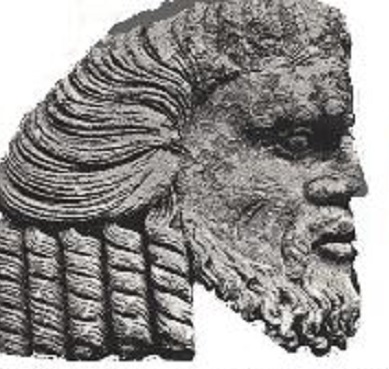
This proposal had already been advanced by Gabriele Rosa, according to whom the first Greeks arrived in the peninsula would have called it precisely Aιθαλια (Italy) because the territory was volcanic, flaming and sooty, for the same reason they said Aιθαλια the islands of Elba (Ilva), of Lemnos and Chios, full of iron forges (SOURCE: Gabriele Rosa, The origins of civilization in Europe, Milan 1862-1863).
In all cases, whether Italy is the land of volcanoes or of King Italo or calves, Calabria is at the center of the origin of the name Italy. Something that few know!

